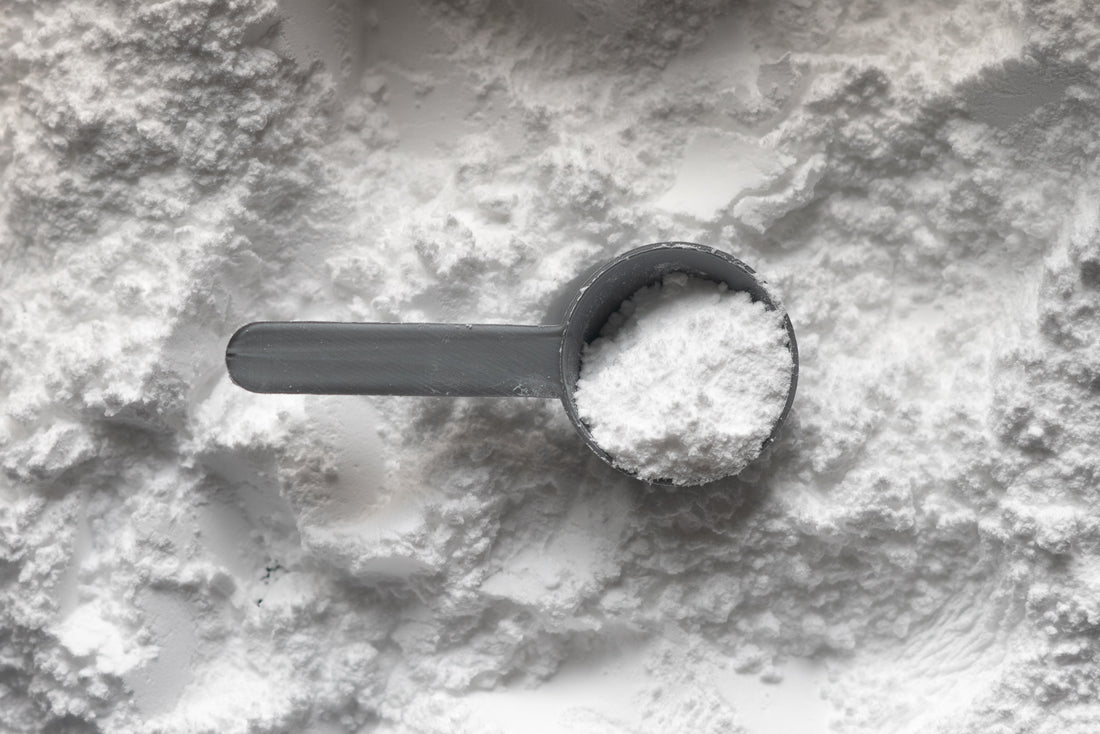You might think that creatine is only for building muscle, but it does so much more. Creatine is an amino acid derivative that is naturally produced in the body and plays a vital role in the production of energy in our cells. Creatine is also found in small amounts in certain foods such as red meat and fish.
🧠 Creatine and the Brain
Evidence is mounting that creatine supplementation can improve cognitive function, memory, and even protect against age-related decline in mental performance. As we age, our cognitive (mental) functions begin to decline, but with creatine we can slow this process and improve our brain function overall.
Our brain requires a lot of energy. Creatine has been proven to play a major role in brain bioenergetics. There are a number of examples that show that creatine supplements can increase creatine stores in the brain, which can improve memory.
A study by Turner, Byblow, and Gant, published in the Journal of Neuroscience, examined the effects of creatine supplementation on mental performance in the absence of oxygen. Participants who took creatine performed better on cognitive tests, including tasks of working memory and attention , than those who did not take creatine.
In a "double-blind, placebo controlled" (extremely high quality ) study , 45 adult vegetarians took five grams of creatine per day for six weeks. The results of the study showed increased working memory and intelligence . Similar results were confirmed by clinical studies of other scientists.
Researchers believe that creatine may improve cognitive performance by increasing energy metabolism and availability in the brain. Creatine supplements increase the brain's energy stores by increasing the availability of phosphocreatine (which can be used for energy production).
There have been over 12 studies examining creatine supplementation and brain creatine levels, with a typical result of 5-10% increase in brain creatine. The most favorable results are seen in cognition, personality behavior, self-care and communication.
Results of a meta-analysis show that creatine supplementation improves memory performance in healthy individuals (especially older adults (66-76 years)).
🧘♀️ Creatine and Emotional Health
There is growing evidence that creatine has potential to help treat depression.
An eight-week study in South Korea tested 52 women who were divided into two groups taking antidepressants or the same antidepressant and creatine. At the end of the study, it was noticed that in the group that used creatine, even 50 percent of women no longer complained of symptoms of depression, while in the other group, there were twice as many women.
It has been concluded that creatine has a lot of potential to contribute to the treatment of depression due to its ability to improve the effectiveness of SSRI (antidepressants acting on the availability of serotonin as a neurotransmitter) treatment.
In Utah, after analyzing data from the National Health and Nutrition Examination Survey, the following observations were made: "...the risk of depression is 31% lower among adults in the top quartile of creatine intake than in the bottom quartile." People in the highest quartile of creatine consumption consume about 1g of creatine per day from food, while those in the lowest quartile consume only 0.15g.
Much more research is currently underway testing creatine both as a primary (at extremely high doses) and as an adjunct in the treatment of depression. So although it is still early to crown creatine as a "medicine" for depression, its potential is promising.
💪 Creatine and Sports
Creatine has been widely used by athletes and bodybuilders for many years to improve muscle strength and endurance. Creatine has been repeatedly shown to support healthy muscle function and boost energy metabolism , thereby increasing performance during exercise.
The main benefit of creatine is the increase in strength and power during resistance exercises. Creatine is believed to not only improve strength, but when combined with training can help increase lean muscle mass and help muscles recover faster during exercise.
Due to creatine's ability to produce energy quickly, taking this supplement can help athletes develop greater bursts of speed and energy, especially during short high-intensity activities such as weightlifting or sprinting.
Consumption
First of all, it is important to mention that there are many different forms of creatine on the market, but creatine monohydrate is the cheapest and most effective (most used in research).
Creatine is considered safe even up to the limit of 30g, but the recommended (and really sufficient) dose is about 2g - 5g per day . If you are very active in sports and have a lot of muscle mass, you may need to increase the dose up to 10g, but it is best to start with the lowest effective dose and thus find the most optimal option.
It is always best to consult a healthcare professional before beginning any supplement regimen.

